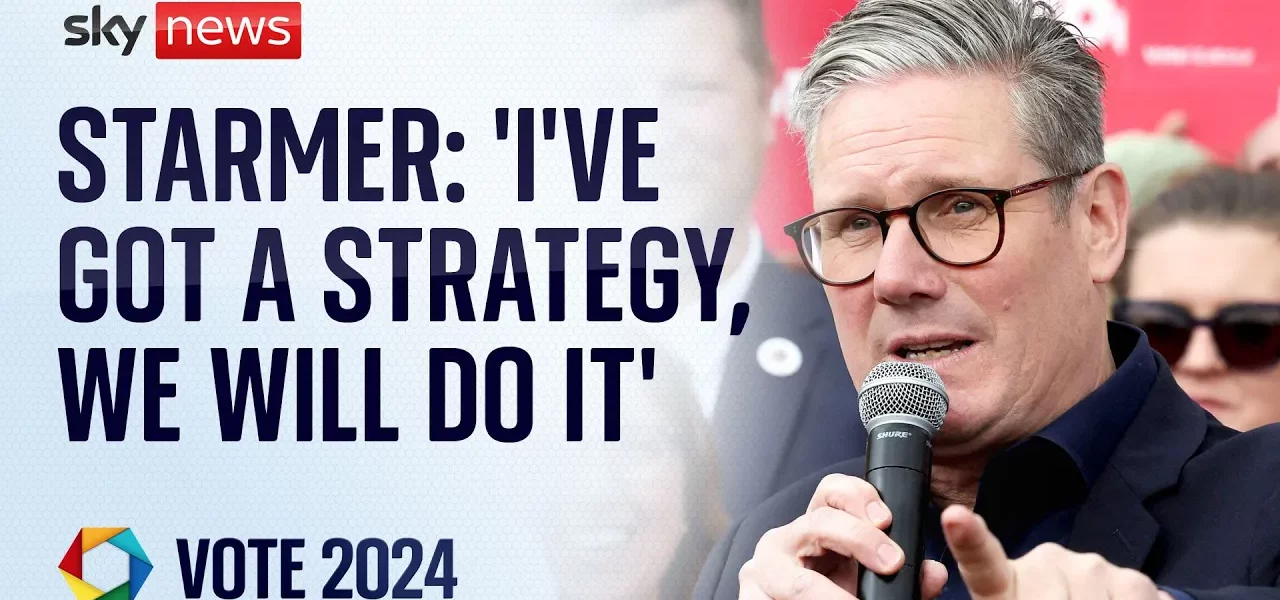Keir Starmer’s Safety First Election Campaign

In the lead-up to the highly anticipated general election, Keir Starmer’s campaign emphasizes a safety-first approach while navigating the complex political landscape. This article delves into his strategies, challenges, and the implications of the upcoming election.
Introduction
As the UK approaches a pivotal general election, the Labour Party under the leadership of Keir Starmer is keenly focused on securing a victory. Starmer’s campaign message, “assume nothing, get out the Labour vote,” resonates with a sense of urgency, highlighting the critical nature of voter engagement in every constituency. In this article, we will explore Starmer’s approach, the political dynamics at play, and the potential outcomes of the election.
Keir Starmer’s Campaign Strategy
Starmer’s strategy revolves around a few core principles aimed at galvanizing support among voters. His emphasis on a “safety-first” campaign is designed to reassure constituents while addressing their concerns about a potential Labour majority.
Engaging Constituents
Starmer’s communication is focused on direct engagement with voters, especially in traditionally conservative areas. He encourages a proactive approach to campaigning, where every vote counts. Key strategies include:
- Visiting key constituencies to connect with local issues.
- Encouraging grassroots mobilization to ensure voter turnout.
- Addressing concerns about Labour’s policies and their implications for local communities.
The Political Landscape
The current political landscape presents both opportunities and challenges for Starmer. With a backdrop of shifting voter sentiments, it is crucial for the Labour Party to understand the dynamics at play.
Polling Trends
Recent polls indicate a favorable shift towards Labour; however, Starmer is cautious, acknowledging that polls do not predict election outcomes. His comments reflect an understanding that electoral victories require more than favorable polling numbers.
Challenges from Competitors
Starmer faces significant challenges from both the Conservative Party and emerging parties like the Reform Party and the Liberal Democrats. Each competitor brings unique dynamics that could impact Labour’s chances:
- Conservative Party: Led by Rishi Sunak, the Tories are focusing on maintaining their voter base, particularly among those who may be disillusioned by recent governance.
- Reform Party: This party appeals to right-leaning voters, creating a competitive environment that could siphon votes from traditional Conservative strongholds.
- Liberal Democrats: Under Ed Davey’s leadership, they are aiming to capitalize on discontent among Tory voters, particularly in marginal constituencies.
Voter Sentiment and Expectations
As the election approaches, voter sentiment is increasingly reflective of the broader socio-political context. Understanding these sentiments is crucial for both Labour and its competitors.
Public Perception of Keir Starmer
Many voters view Starmer as a respectable and decent leader, especially after years of Conservative governance. However, opinions remain mixed:
- Some voters express hope that Labour will bring about necessary change.
- Others are wary of Starmer’s policies and question his decisiveness.
- Concerns about a potential Labour supermajority are prevalent among undecided voters.
Constituency-Level Dynamics
In key battleground areas like Hitchin and Harpenden, voters are faced with critical choices that could define their political future. Constituents express a range of opinions, including:
- Support for Labour’s vision for change.
- Skepticism about the effectiveness of Labour governance.
- Willingness to explore alternative parties such as the Reform Party.
Conclusion
As the general election approaches, Keir Starmer’s campaign reflects a blend of caution and ambition. His focus on a safety-first approach aims to engage voters effectively while addressing their concerns about a potential Labour government. With the political landscape shifting rapidly, it is imperative for Labour to harness voter sentiment and mobilize support across constituencies. The outcome of this election could usher in a new political era in the UK. Voters are encouraged to make their voices heard and participate in shaping the future of their country.
“`




